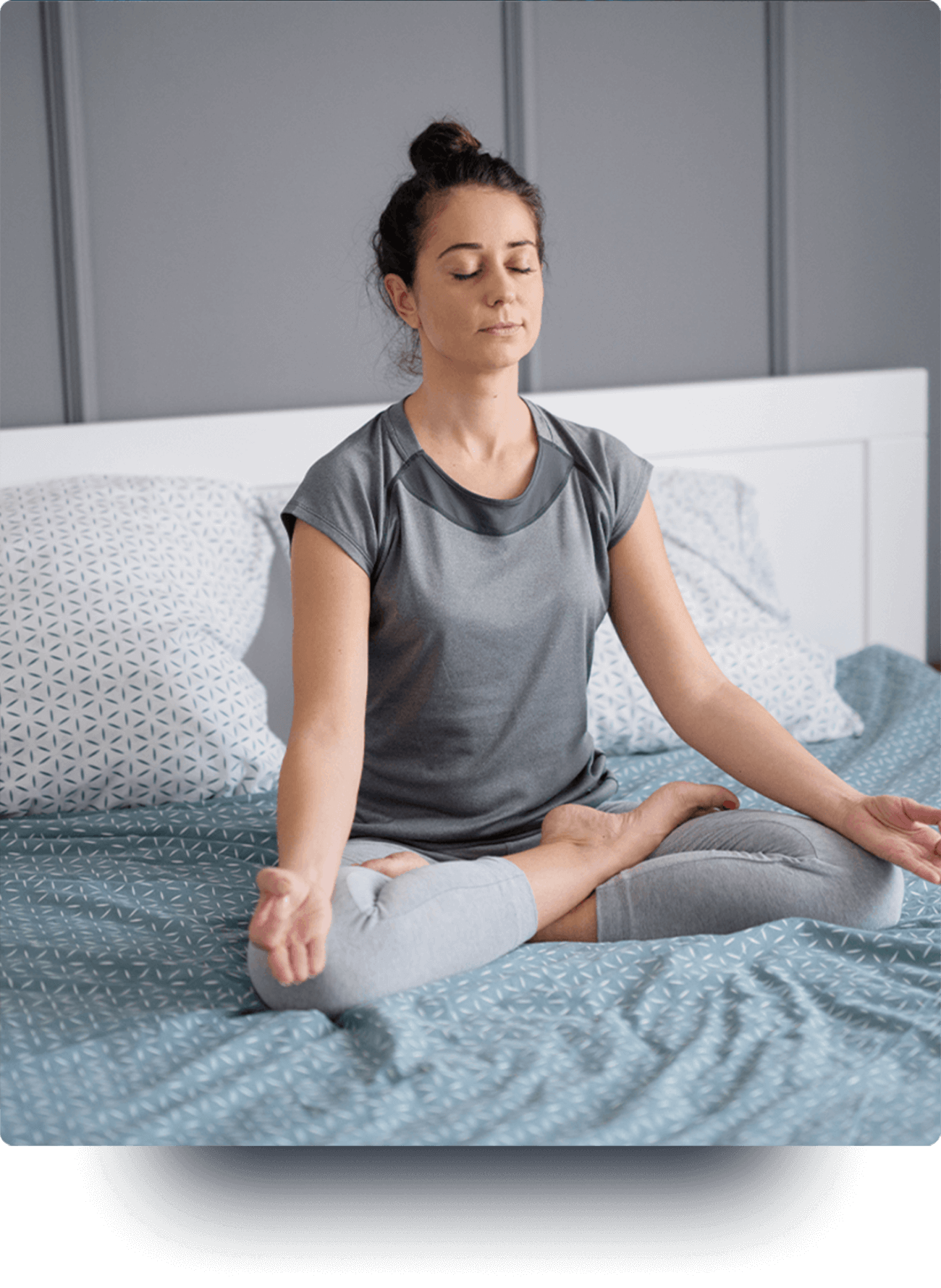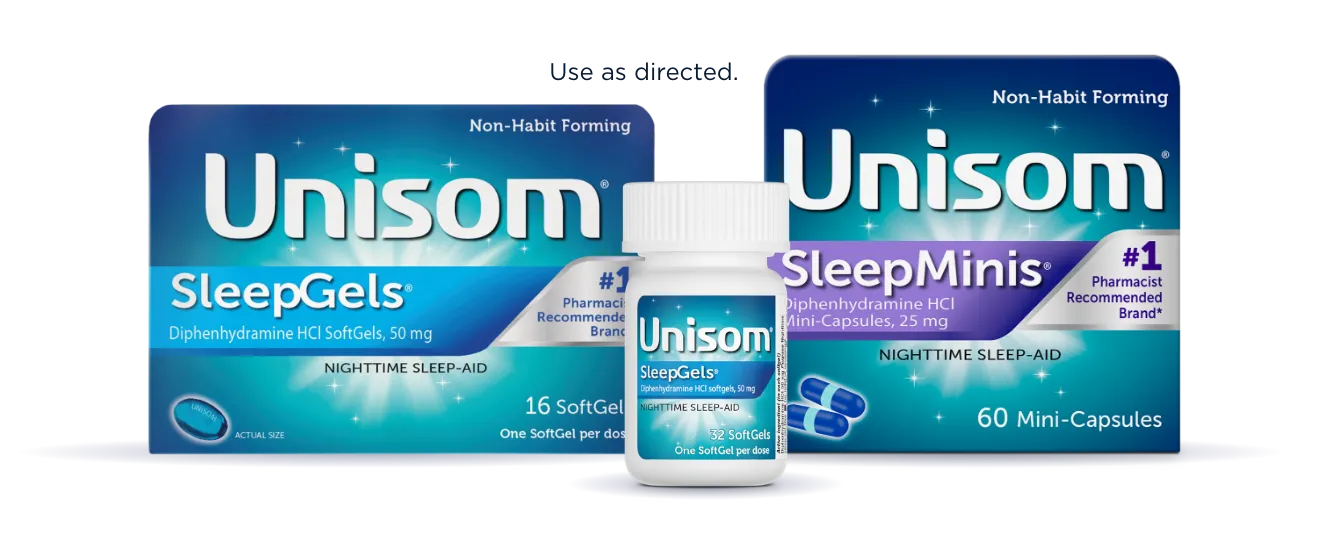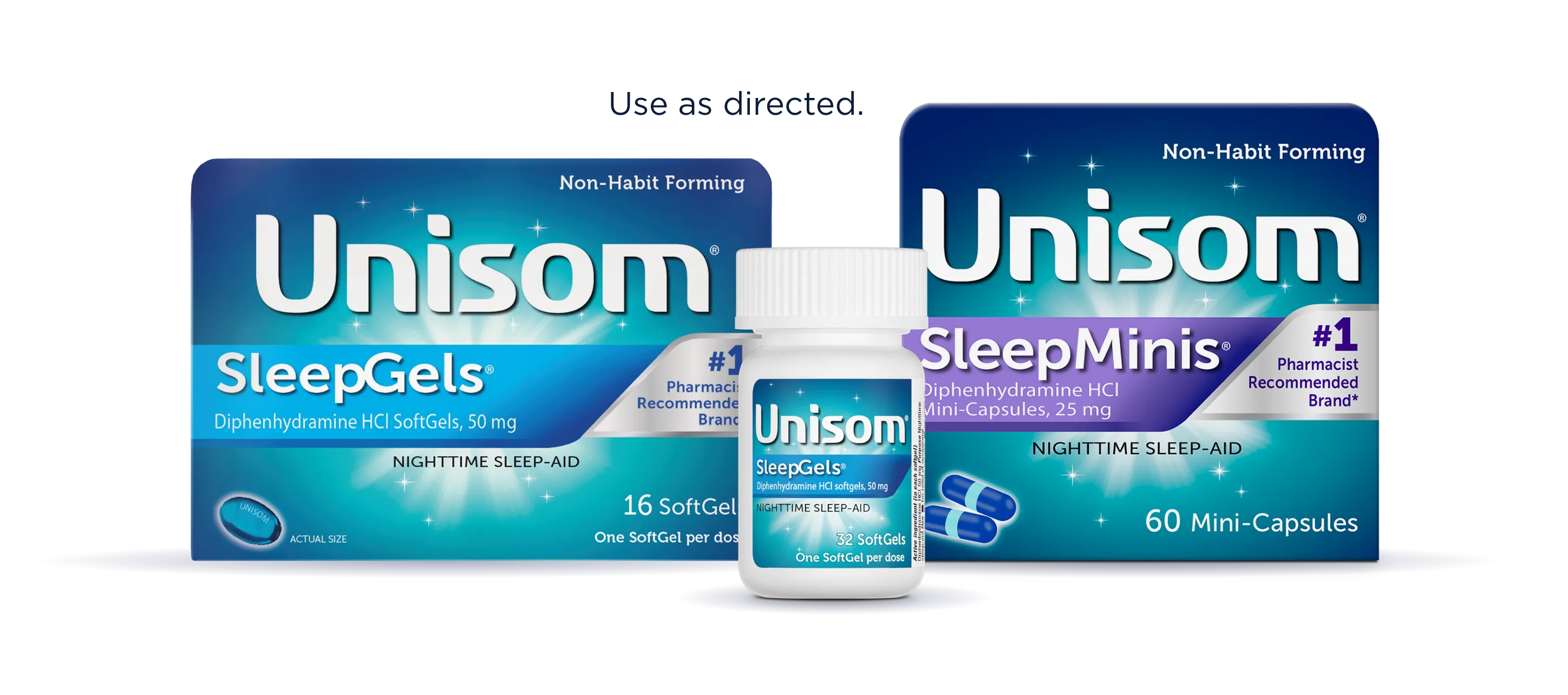A restful night’s sleep isn’t always as easy as getting into bed and dozing off. Sometimes your habits, stress, or excess energy can keep you up.
Good rest is critical to your health and wellness. When you get good sleep, your mind and body work better.
So if you're having trouble getting sleep, consider what’s keeping you up and why. Once you narrow down the cause, you can adjust your routine for a better night’s sleep and better health.
Find your own rhythm
Your body wants to keep a set schedule for sleeping, eating, and other biological functions. And generally it does a great job staying on track.
In fact, your body has an internal clock that regulates sleep and wakefulness over a 24-hour period — called a circadian rhythm.

External signals like daylight, temperature, and activity tell your body when it’s time to wake up and go to sleep. But false alarms — including excess light, noises at night, and other life disruptions — can interrupt your normal 24-hour cycle.
Trouble falling asleep
There are so many reasons why you can’t sleep: stress, illness or injury, too much stimulation, or disruptions to your sleep schedule.
Things like late-afternoon coffee and scrolling through your socials before bed can send a signal to your body to keep active, making it difficult to settle down.
Uncover what’s keeping you up:
-
Stress. Stressful situations can take an awful toll on your sleep habits. If you find yourself lying awake with worries, take action before the stress starts keeping you from getting the rest you need. To help alleviate stress, you can try relaxation, breathing, and visualization exercises.1
-
Stimulation. Substances like caffeine, alcohol, and tobacco can keep you up or cause interrupted sleep. Try to limit your consumption after noon2 so you can get to sleep — and stay asleep — better.
-
Indigestion. Eating too close to bedtime — including midnight snacks — can keep you from sleeping soundly.2 Try to eat meals at least two to three hours before bed.
-
Noise. Unexpected noises can disrupt sleep. That can include your bed partner snoring, urban noises, leaky faucets, barking dogs, or even a creaky bed. Earplugs are a good solution. So are white noise machines, which can mask other sounds.2
Good sleep hygiene leads to better health
Sleep hygiene is about having a relaxing pre-bedtime routine and a comfortable bedroom environment.³

Here are some tips to prioritize sleep:³
- Get physical. Your body needs activity so you’re tired at bedtime. Getting active during the day — making sure to give your body a couple hours to unwind before bed — will also help lower your stress.
- Careful with caffeine. An afternoon cup of coffee can be tempting, but the effects of caffeine can linger in the body for several hours. Also remember that many teas and sodas also contain caffeine.
- Dark mode. Blue light from electronics can signal that it’s still light out. Try to limit electronic usage at least an hour before bed.
- Napping. Daytime snoozing decreases the amount of sleep you need at night. Over time, this can cause sleep deprivation due to excess evening energy, so try to limit naps unless you really need one.
A routine for a well-rested you
External factors might keep you awake and feeling restless. But a couple routine adjustments can help ease your sleepless nights.
Here are some tips you can add to your routine:
- Add structure. Follow an evening routine and try to fall asleep at a similar time each night
and wake up around the same time each morning.3 - Try a sleep app.1 New smartphone apps are designed to help you drift to sleep.
- Slow down. There are sleep-specific guided meditations that help reduce stress, and slow down activity in the mind, to eventually help you fall asleep.1
- Do sleepy-time yoga. Add a regular, gentle bedtime yoga practice that helps you unwind and ease stress.1
- Enjoy aromatherapy. Certain essential oils — like lavender and chamomile — can help you relax.1
- Breathe deep. While your eyes are closed, focus on deep abdominal breathing to relax your muscles and take your mind off stress.1
- Try sleep-aids or supplements. If you still have trouble sleeping, ask your doctor if a Unisom® over-the-counter (OTC) sleep-aid or drug-free sleep supplement can help get you back on your sleep routine.
Rest assured
Sometimes you just want a little help sleeping. And you can count on us to get a better night's sleep. Unisom® is the #1 doctor-recommended OTC sleep-aid brand, with a range of options to help you fall asleep and wake up feeling refreshed.
Unisom® SleepGels® contain the histamine blocker diphenhydramine HCl. Blocking histamine production can help you fall asleep faster and stay asleep.
Unisom® SleepTabs® contain doxylamine succinate, which is a clinical strength histamine blocker that works in a similar fashion to diphenhydramine. Unisom® SleepTabs® can help you fall asleep 33% faster and get a full night's sleep.
Find the Unisom® product that’s right for you.
Download the Unisom® Sleep Diary.
Professional References
1. American Sleep Association, editors. 2021, Calming Rituals to Help You Fall Asleep. American Sleep Association (http://www.sleepassociation.org).
2. National Sleep Foundation, editors. May, 2020, 10 Tips for a Better Night’s Sleep. National Sleep Foundation (https://www.thensf.org/).
3. American Sleep Association, editors. 2021, Sleep Hygiene Tips. American Sleep Association (http://www.sleepassociation.org).
Related articles
†This statement has not been evaluated by the Food and Drug Administration. This product is not intended to diagnose, treat, cure or prevent any disease.





